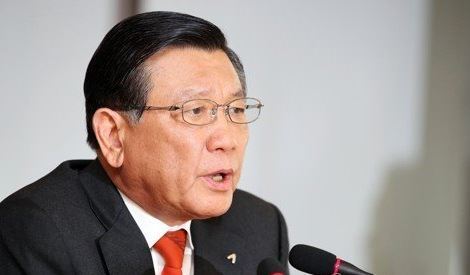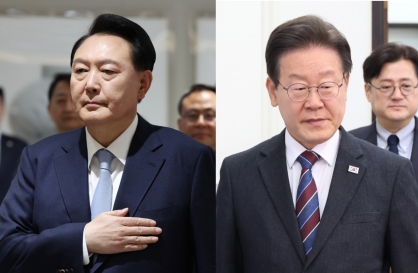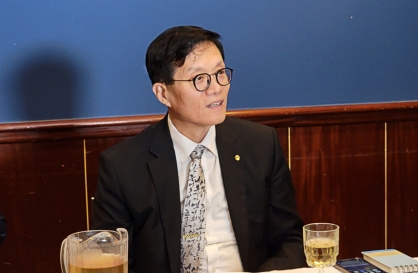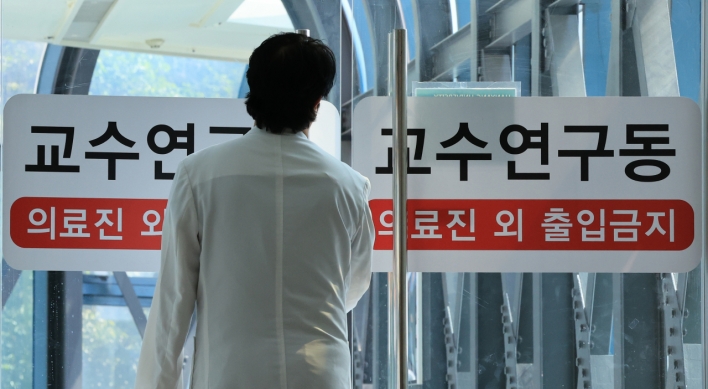FTC to report Kumho head to prosecutors over unfair internal transactions
By Shin Ji-hyePublished : Nov. 21, 2018 - 17:18
The chairman of Kumho Asiana Group, a South Korean conglomerate with businesses in the logistics and airline industries, is slated to be reported to prosecutors by the nation’s antitrust watchdog over the alleged arrangement of unfair internal transactions with affiliates, according to local media outlets on Wednesday.
According to the reports, the Fair Trade Commission is preparing to report Chairman Park Sam-koo and several executives to prosecutors over alleged violations of the fair trade law.
The FTC found that Kumho Holdings, the holding company of Kumho Asiana Group, borrowed 96.6 billion won ($85 million) from seven affiliates, including Kumho Industrial, at a lower interest rate than the market rate, in 2016.
Kumho Holdings borrowed the money at an interest rate of around 2 to 3 percent, much lower than the around 5 to 7 percent in the market, leading to profits of around 1 billion won, according to the reported findings. The FTC believes that Chairman Park was directly involved in the decisions.
According to the reports, the Fair Trade Commission is preparing to report Chairman Park Sam-koo and several executives to prosecutors over alleged violations of the fair trade law.
The FTC found that Kumho Holdings, the holding company of Kumho Asiana Group, borrowed 96.6 billion won ($85 million) from seven affiliates, including Kumho Industrial, at a lower interest rate than the market rate, in 2016.
Kumho Holdings borrowed the money at an interest rate of around 2 to 3 percent, much lower than the around 5 to 7 percent in the market, leading to profits of around 1 billion won, according to the reported findings. The FTC believes that Chairman Park was directly involved in the decisions.

The allegations were first raised by activist group Solidarity for Economic Reform in May last year, upon which the FTC conducted an onsite inspection of Kumho Asiana Group affiliates in January.
The allegations surrounding Kumho’s chairman is the latest in a series of cases involving illicit practices by South Korean conglomerates.
Last week, the FTC reported Lee Kun-hee, chairman of Samsung Group, to prosecutors over allegations of intentionally omitting two affiliates in reports summited to the FTC. It said the two affiliates solidified their positions in the market with the backing of the group that unfairly gave work to them.
In the same week, a Seoul court sentenced Lee Joong-keun, chief of a local construction and real estate business group, Booyong, to five years in prison for embezzlement and breach of trust, saying, “(Lee) used funds from the affiliates of Booyoung for his own interest in the long term.”
Chung Jae-kyu, a senior researcher at the Korea Corporate Governance Service, said that conglomerates should not be considered possessions of controlling family members.
“In countries with a more advanced corporate culture, when a head is found to have unfairly supported the firm’s affiliates, the punishment is very strong,” Chung said.
They face a strong backlash from other shareholders who demand massive compensation for damage. Leaders could also be dismissed from the board of directors, he said.
“In many cases, a sound affiliate faces pressure to support a money-losing affiliate for the sake of the owner family members, causing conflicts of interest among shareholders of the two units.”
By Shin Ji-hye (shinjh@heraldcorp.com)





![[AtoZ into Korean mind] Humor in Korea: Navigating the line between what's funny and not](http://res.heraldm.com/phpwas/restmb_idxmake.php?idx=644&simg=/content/image/2024/04/22/20240422050642_0.jpg&u=)





![[Herald Interview] Why Toss invited hackers to penetrate its system](http://res.heraldm.com/phpwas/restmb_idxmake.php?idx=644&simg=/content/image/2024/04/22/20240422050569_0.jpg&u=20240422150649)







![[Herald Review] Xdinary Heroes kicks off five-month-long project with solo concert, teases new album](http://res.heraldm.com/phpwas/restmb_idxmake.php?idx=652&simg=/content/image/2024/04/22/20240422050539_0.jpg&u=20240422152154)
![[Today’s K-pop] Illit logs 100m Spotify streams with debut song](http://res.heraldm.com/phpwas/restmb_idxmake.php?idx=642&simg=/content/image/2024/04/22/20240422050650_0.jpg&u=)